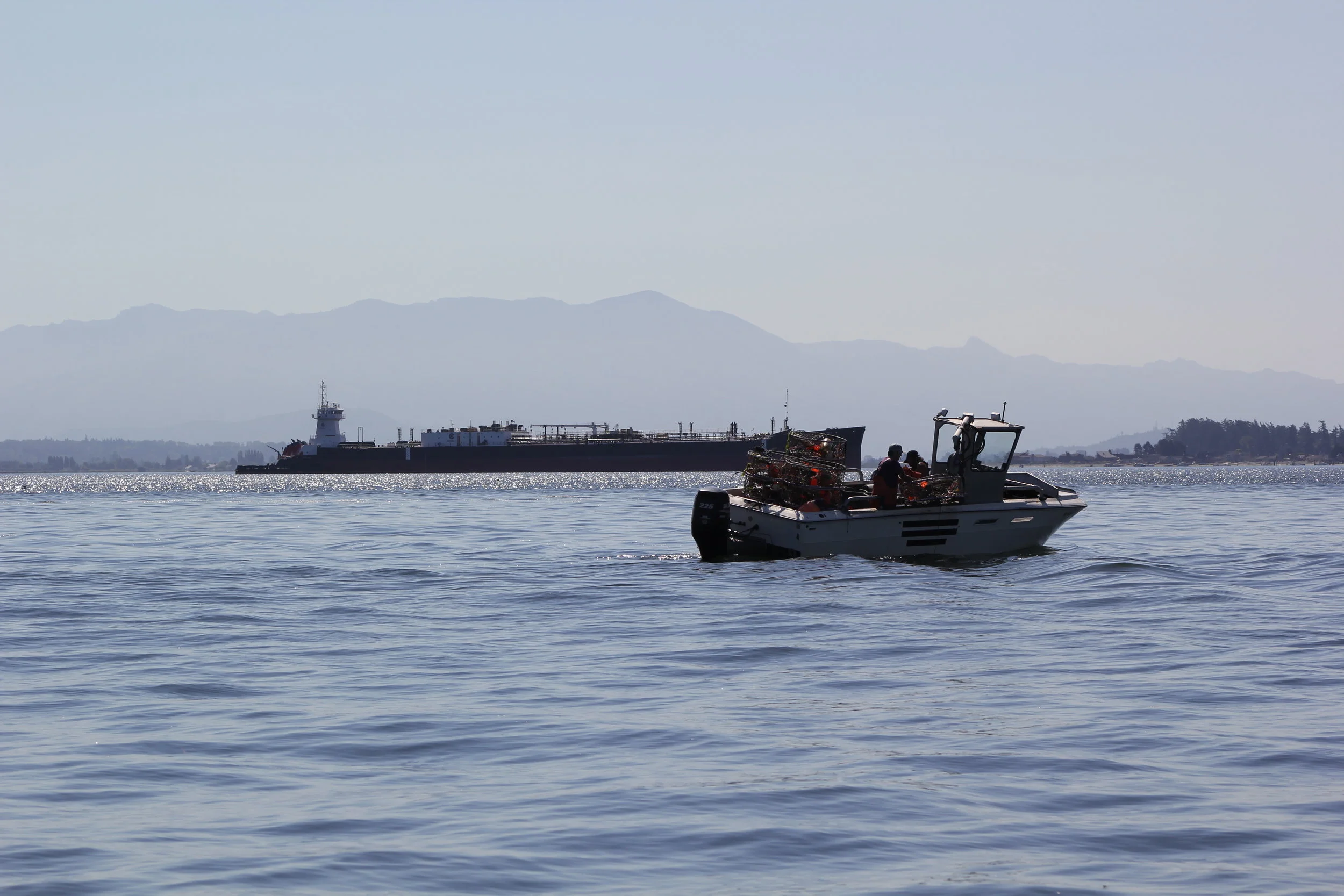SAME TIME, NEW LOCATION:
Transportation of Unrefined Fossil Fuel and Risks to Washington Treaty Tribes Summit
Old Dining Hall Meeting Center
4033 76th Place NW
Marysville, WA 98271
Map
Friday, September 29 | 8:00 a.m. – 4:00 p.m.
The transportation of unrefined fossil fuels in Washington continues to threaten tribes’ treaty rights as well as the environment. We now live in an environment where fish numbers continue to decline and we have a presidential administration that is willing to overlook environmental issues and the trust responsibility it has with tribes for short-term gain.
In the second quarter of 2017, oil shippers reported moving an average of 156,854 barrels of oil per day by train—a total of 14.3 million barrels. It was also reported that in the second quarter of 2017, Washington shipped out more than one million barrels of crude from refinery or port docks.*
Now is more important than ever for tribal, state, and federal governments to convene and discuss ways to address the issues that threaten the future of tribes and Native people throughout Washington.
*Source: Sightline article, 157,000 Barrels of Crude-by-rail per day to Puget Sound
When: Friday, September 29, 2017, 8:00 a.m. – 4:00 p.m.
Location:
Old Dining Hall Meeting Center
4033 76th Place NW
Marysville, WA 98271
Directions:
From Exit 199 on I-5 (Marysville/Tulalip), head west on Marine Drive
Travel approximately 6.5 miles
Turn left onto 76th Place NW (Water Works Road is on the right)
Go past the Tulalip Tribes Health Clinic (on the left)
Road curves
Continue a short distance just past detention pond on the right
Turn left into gravel parking lot and look toward the Tulalip Bay
Registration: FREE
summit details and registration
8:00 – 9:30 a.m.
Introduction and Opening Comments: Co-Speaker Brian Cladoosby, Chair, Swinomish Indian Tribal Community
Overview of projects, updates on agency review and permitting in the Salish Sea
- Summary of the Law of Treaties
9:30 – 11:00 a.m.
Moderated Panel: Agencies
- Washington State Dept. of Ecology: Report to Governor on Oil Transport; VTRA II Study; Glosten Gateway Pacific Terminal Study; Quarterly Oil Transportation Report
- Washington State Department of Archeology and Historic Preservation: Section 106
- Department of Natural Resources: Aquatic Reserves
- U.S. Coast Guard, U.S. Dept. of Homeland Security: Anchorage Rule; NEPA
- Army Corps of Engineers: Rivers and Harbors Act, Section 404 Determinations
- U.S. Environmental Protection Agency: Clean Water Act, Oil Spill Remediation
11:00 a.m. – 12:00 p.m.
Roundtable: Tribal Leader Remarks
12:00 – 1:00 p.m.
Lunch (to be provided)
1:00 – 3:00 p.m.
Roundtable Discussion on Next Steps with the State
3:00 – 4:00 p.m.
Closing Remarks and Conclusions
- Action Items and Next Steps
- Closing
Agenda
Share Washington treaty tribes' messages on the transport of unrefined fossil fuels with governmental agencies and officials.
Emphasize that Washington treaty tribes are sovereign governments with reserved and inherent rights unique to each tribe, including the rights to hunt, fish and gather throughout Washington State.
Acknowledge that Washington treaty tribes have thrived since time immemorial due to protection and careful management of shared natural resources.
Recognize the limited carrying capacity of the land and sea in the face of economic growth.
Highlight and show how current government permitting practices minimize and omit analysis of cumulative impacts, which undermines the lifeways of all Washington treaty tribes.
Emphasize that Washington State—coordinating with its federal government partners—has an opportunity to lead the world in methods for studying and regulating cumulative impacts detrimental to tribes.
Discuss changes to governmental decision making on unrefined fossil fuel transport, so that avoidance of cumulative impacts to treaty tribes is given precedence.
Address the urgent need to create ongoing collaborative partnerships between government agencies and tribes to identify and reduce the key threats to tribal treaties, lands and cultures from the transport of unrefined fossil fuels.
summit objectives
Active listening between agencies and Washington treaty tribes.
Comprehensive knowledge of the adverse impacts of unrefined fossil fuel transport on treaty tribes.
Recognition that these issues need to be addressed in a proactive and holistic manner.
Creation of specific action steps to solidify a meaningful, collaborative partnership between Washington treaty tribes and government agencies to protect natural resources and correct the mistakes of the past.

